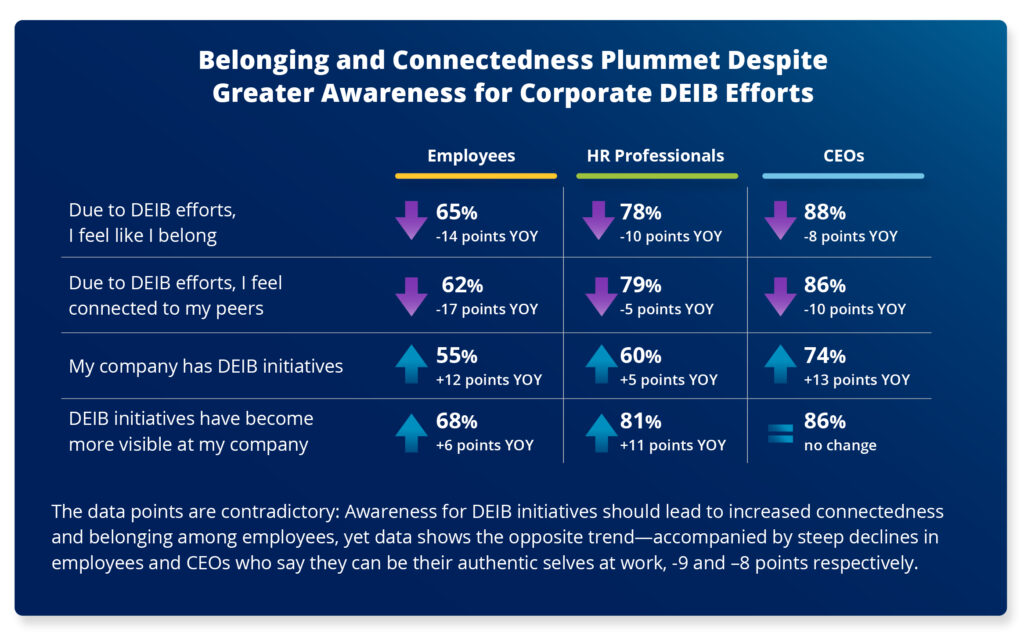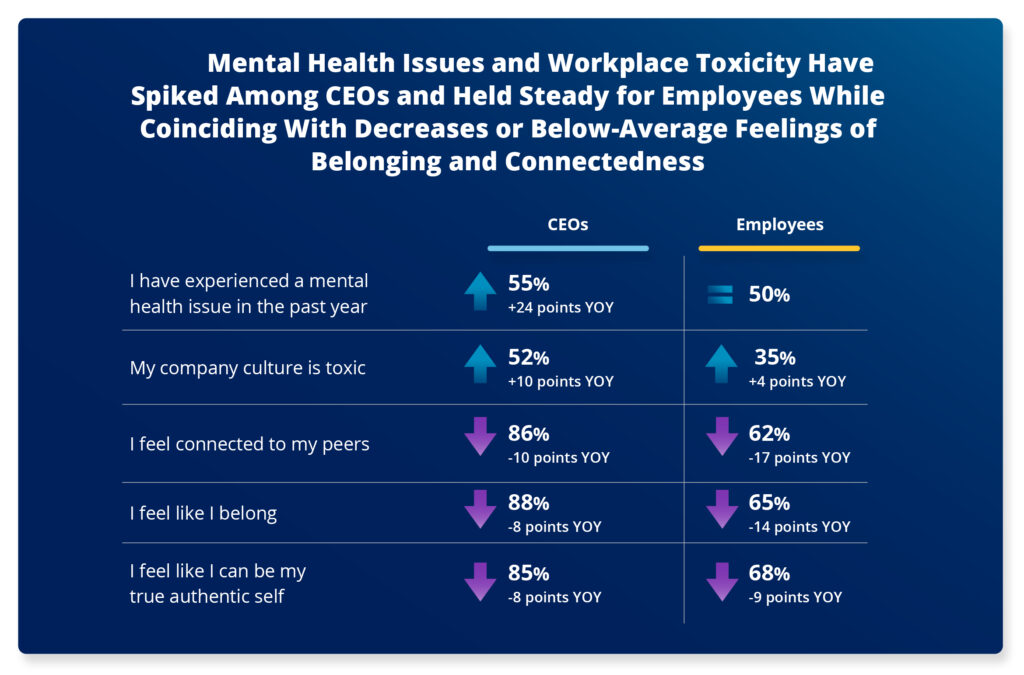A new study shows sharp declines in workplace belonging and connectedness for both CEOs and employees.
Despite a surge in efforts around diversity, equity, inclusion, and belonging (DEIB), both employees and CEOs are feeling less connected and supported at work than ever before, according to a new study carried out by HR tech firm Businessolver. The findings, published in its 2024 State of Workplace Empathy DEI report, show sharp declines in workplace belonging and connectedness across all industries.
The report, based on data from over 3,100 employees, HR professionals, and executives, paints a stark picture in the US. “We’re witnessing a significant drop in feelings of belonging and connectedness, particularly among employees and CEOs,” said Rae Shanahan, Chief Strategy Officer at Businessolver. “Despite increased visibility of DEIB efforts, the sentiment is clear – companies are still falling short of creating environments where everyone feels they belong.”
DOUBLE-DIGIT DECLINES IN WORKPLACE BELONGING
The data is telling. Only 65% of employees in 2024 said they feel they belong in their workplace, marking a dramatic 14-point drop compared to last year. CEOs and HR professionals weren’t immune to this trend, with 8-point and 10-point declines in their feelings of belonging, respectively. The situation is even more dire when it comes to feelings of connectedness with peers – only 62% of employees reported feeling connected, a 17-point year-over-year decline.
Even leaders at the highest levels are feeling the strain. CEOs reported a 10-point drop in connectedness, mirroring a larger trend of deteriorating workplace culture across various sectors.

RISE IN DEIB EFFORTS
Ironically, the decline in belonging comes at a time when more companies are ramping up their DEIB initiatives. The report shows a 12-point increase in the number of employees who said their organizations have DEIB programs in place, rising from 43% in 2023 to 55% in 2024. Visibility around these efforts is also growing, with 68% of employees reporting that DEIB has become more noticeable at their companies.
Yet despite these improvements in awareness, the sentiment remains grim. “Awareness alone isn’t enough,” Shanahan noted. “Employees and leaders alike recognize the need for deeper, more meaningful action.”
IMPACT OF TOXIC WORKPLACE CULTURE ON MENTAL HEALTH
The report draws a clear link between declining feelings of belonging and a troubling rise in mental health issues and workplace toxicity. Half of all employees reported facing a mental health issue in the past year, while 35% said their company culture is toxic. CEOs were even more critical, with 50% agreeing that their workplace culture is toxic.
Lisa Alvarado, Managing Director at Holistic, a DEIB consultancy, stressed the importance of addressing these issues head-on. “Now is the time for leaders to invest in people,” she said. “Intentional strategies to foster inclusion, employee engagement, and professional development are critical to improving workplace culture.”
As the report makes clear, DEIB programmes are not enough on their own. Companies must find ways to not only implement initiatives but also ensure they are effective in fostering a true sense of belonging.
Click here to explore the full findings from the 2024 State of Workplace Empathy DEI report.









































